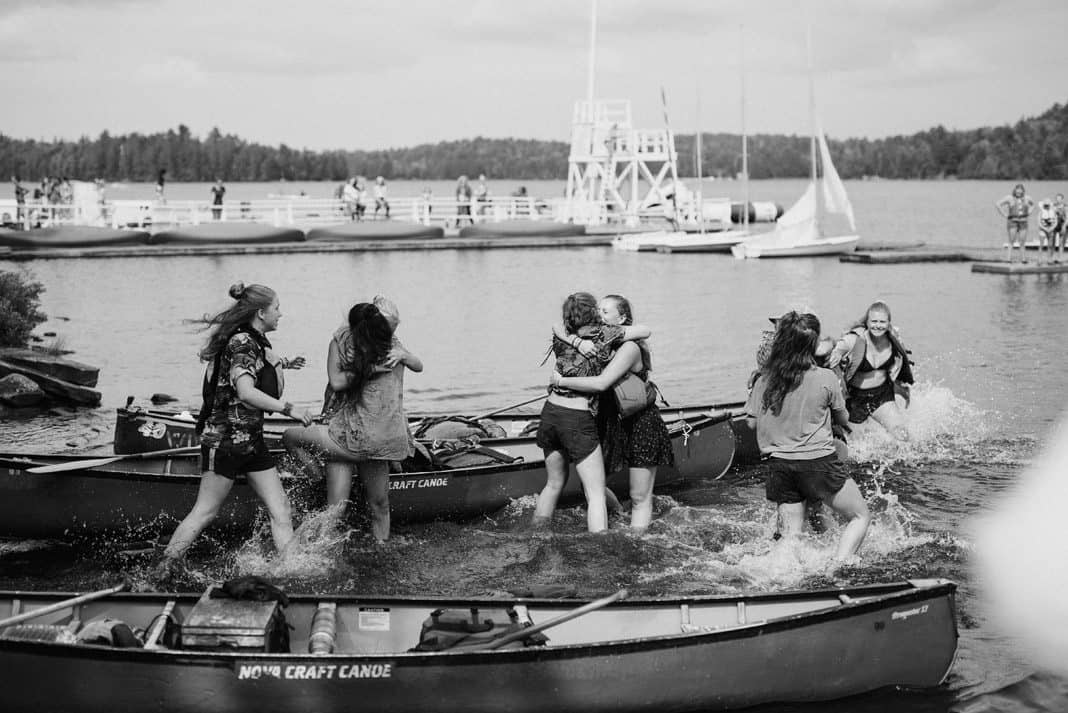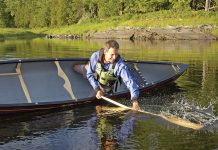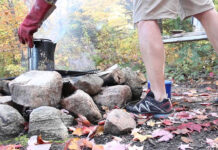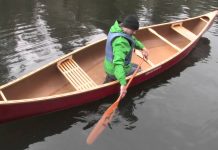Three canoes are rafted up in the middle of Canoe Lake in Algonquin Provincial Park on a picture-perfect, blue-sky day. There’s a light breeze, which is a change from the usually confused headwinds from all directions.
It’s the end of August and the shores of Camp Wapomeo, located on an island in the middle of Canoe Lake, are lined with young women who have all completed their own canoe trips this summer, ranging in length from a simple overnight to 42 days.
“They probably don’t want to come in yet,” one of the staff members suggests to a camper as they watch the canoes hesitate offshore. Word of this group’s return spreads faster than the wildfires the season has become infamous for and campers and staff begin to crowd the docks and beach to welcome the voyageurs home.
Each summer Camp Wapomeo sends out four 50-day canoe trips
It is a tradition since the first 50-day expedition in 1985. The longest trip the camp offers, this rugged trek through the wilderness by portage and paddle is only available to the oldest campers who have previously completed at least a 36-day canoe trip.
The young women now returning worked with staff members to plan the route, starting in the northern ghost town of Biscotasing, Ontario, on July 2 and paddling approximately 1,000 kilometers to return home on August 20.
It wasn’t an easy summer. Record-breaking heat and little rain contributed to wildfires across the province, necessitating daily satellite calls to camp, forcing near daily route adjustments and a majority of the summer cooking by gas rather than a campfire.
Every cabin group completing a canoe trip over 20 days maintains their legacy in the form of a plaque in the Camp Wapomeo dining hall. However, trippers who complete the 50-day expedition go down in the history books, commanding a level of respect and adoration from their younger peers and alumni.
As the paddlers take up strokes again, just 30 meters from the end of their journey and with the gathered crowd eagerly waiting to celebrate their arrival, the emotion is just too much to contain. Tears stream down the cheeks of several paddlers.
After 50 days with only each other and the rhythm of their paddles for company, they are overcome with thoughts of the journey’s end, the sun setting on summer, and perhaps the dying embers of their own days as campers.
Theirs is a feeling anyone who has completed a canoe trip can relate to. The glimmer of water at the end of a difficult portage or reaching the shore of a campsite after a long paddle through a headwind. That full body relief of achieving a goal.
Good times never seemed so good. Text and Feature Photo: Mike Last









